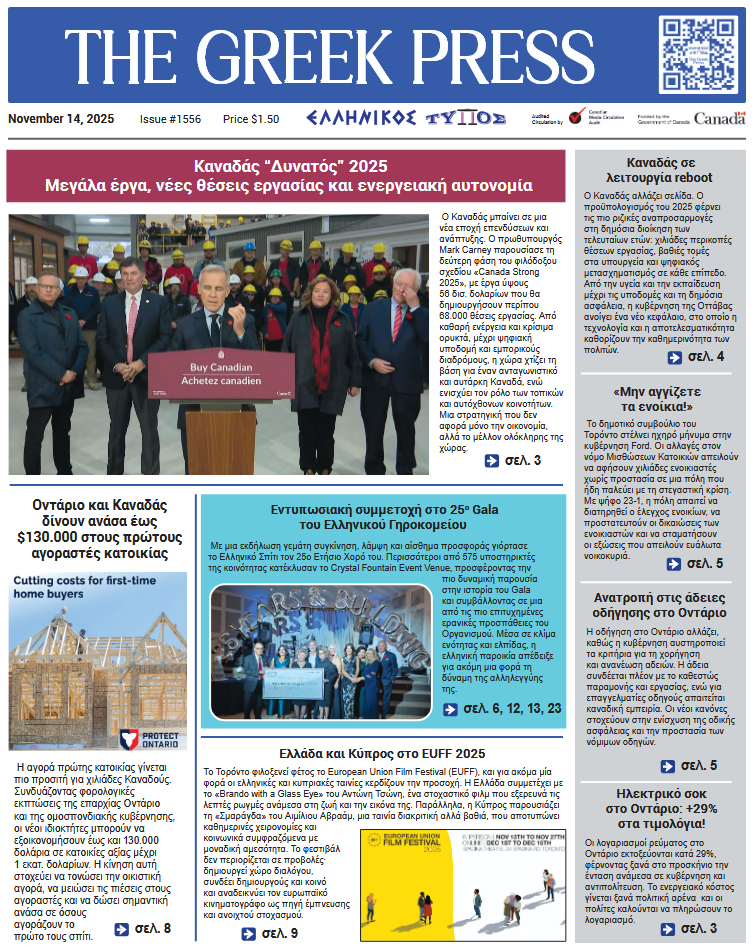 CLICK TO VIEW THE WHOLE PUBLICATION ONLINE
CLICK TO VIEW THE WHOLE PUBLICATION ONLINEThe Metropolitan Opera has a new production of Richard Wagner’s Lohengrin and it has broadcast it around the world live in HD, as they say. It is set in a post-apocalyptic world and is a spectacular and imaginative production that is a great distance from more orthodox stagings.
Producer Francois Girard and Set Designer Tim Yip show us what is left of the world after the apocalypse. The set in the opening scene shows a big cavern that may be a bomb hole or an abandoned stadium with a large opening at the top. Everything is bleak and there are some human remains hanging from the edge of the opening. We see the moon in its rotation and the dark colours of the sky.
The people of Brabant that are gathered to see King Heinrich (Gunther Groissbock) are dressed in black and the scene is one of a desperate and desolate world.
In subsequent acts we remain in the same set but the stands of the first act are removed. The black walls look derelict and the signature postapocalyptic set remains even when Lohengrin (Piotr Beczala) and Elsa (Tamara Wilson) go to their “honeymoon suite.”
The singing is generally outstanding with a few contrary comments. Tenor Piotr Beczala has excelled in Verdi roles and has now made the leap into a heavy-weight Wagnerian part. His voice has the power and suppleness for the role but there are moments when he needs to soar above the chorus and I felt that he fell a notch short of it. I was looking, perhaps unfairly, for an extraordinary heldentenor and Beczala did not meet that criterion in some moments. Otherwise, he was an excellent Lohengrin.
He was not cast as a heroic knight. He wore a plain white shirt and black slacks. No heavy knightly armour, no gleaming sword and no transportation on a boat pulled by a swan. The swan is hinted at in the projections and that is quite sufficient. But in his fight with Friedrich, Lohengrin does not even have a sword. His opponent is defeated magically.
Lohengrin needs a great Elsa of Brabant, the beautiful, pure and troubled woman who is accused of killing her brother but falls in love with Lohengrin and must observe a simple condition: never ask for the name of her husband. Wilson does a fine job in the lyrical passages but her voice thins out when she attempts to sing high notes with power. I need to qualify this with the possibility that it is the fault of the microphones or the transmission but what I heard was not always top notch. But in the final act, both Beczala and Christine Goerke as Ortrud were simply outstanding. In a performance that was almost five hours, with two intermissions, this was a glorious way to end the afternoon.
The production has much better luck with the villains, Friedrich (Evgeny Nikitin) and Ortrud (Christine Goerke). Bass-baritone Nikitin’s Friedrich is a hen-pecked and insulted villain who can’t do anything right. But Nikitin does a superb job portraying him vocally and theatrically. Ortrud, Friedrich’s nasty and scheming wife, is usually sung by a mezzo soprano but Goerke showed that she can handle the role with aplomb and sing the low notes without a hitch. A stunning performance in every respect.
The relatively minor characters deserve unalloyed kudos for their performances. I start with the stentorian King’s Herald sung by baritone Brian Mulligan, to the commanding King Heinrich sung by bass Gunther Groissbock with splendid sonority.
The Met Opera Chorus was stunning as usual vocally but they had more to do than sing. Costume Designer Tim Yip had designed three-coloured costumes that the choristers could switch to black, green, red or white in unison or in different sections. It was visually stunning as the colours were switched to indicate the different moods or loyalties of the people of Brabant. Yip also designed the unforgettable set. David Finn is the Lighting Designer; Peter Flaherty is the Projection Designer and Serge Bennathan the Choreographer.
Yannick Nézet-Séguin conducted the Met Opera Orchestra and Chorus with exemplary ability and talent.
Francois Girard’s new production deserves the highest praise and should go down as one of the most significant stagings of Lohengrin in the Met’s history.
Lohengrin by Richard Wagner was shown Live in HD from the Metropolitan Opera on March 18, 2023 and will be shown again on April 8, 2023, at various Cineplex cinemas. For more information: www.cineplex.com/events/






























